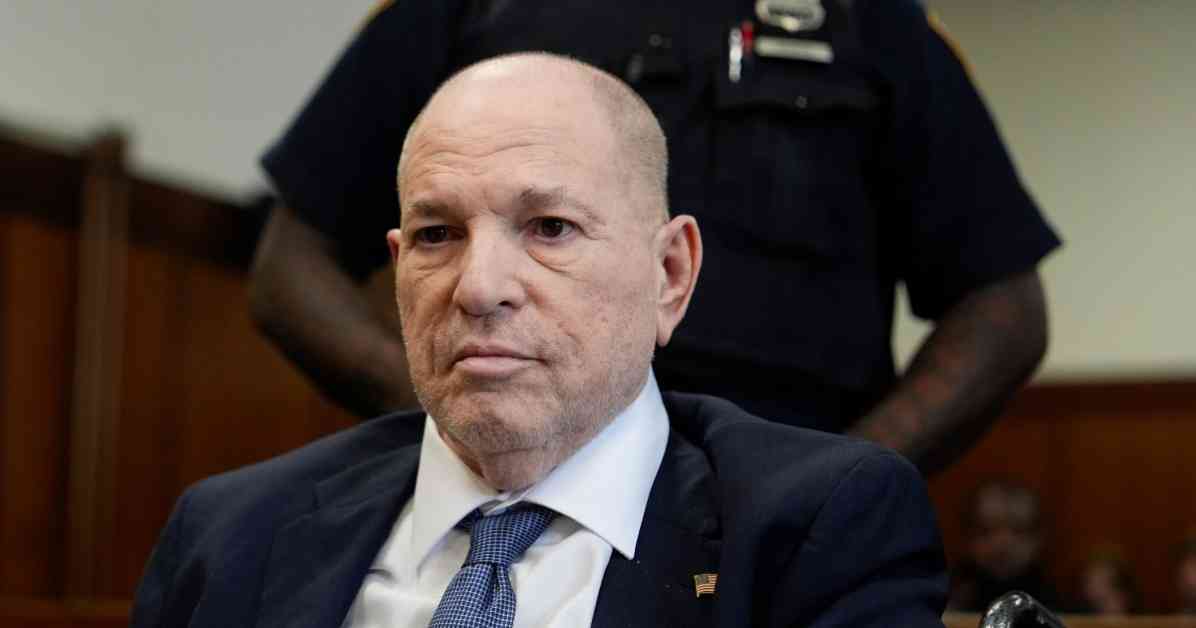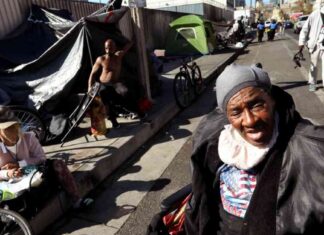Following a recent health scare, Harvey Weinstein, the disgraced Hollywood producer, underwent emergency heart surgery at New York’s Bellevue Hospital. This development comes as Weinstein awaits a new trial following the overturning of his sex crime convictions in New York.
Weinstein, 72, was rushed to the hospital from Rikers Island prison, where he has been serving time. His representatives confirmed that he underwent a procedure to remove fluid from his heart and lungs. Craig Rothfeld, Weinstein’s prison consultant, and Juda Engelmayer, his publicist, released a statement regarding the surgery.
The film mogul has a history of health issues, including diabetes, high blood pressure, spinal stenosis, and fluid in his heart and lungs. Previously, in July, Weinstein was hospitalized for COVID-19 and pneumonia in both lungs, further complicating his health concerns.
Weinstein’s hospitalization follows a significant legal development. In April, a New York appeals court overturned his 2020 rape and sexual assault convictions, citing a lack of a fair trial. As a result, a new trial has been tentatively scheduled for November, marking a pivotal moment in Weinstein’s legal battles.
In addition to his overturned convictions in New York, Weinstein is also serving a 16-year prison sentence in Los Angeles for separate sex crimes. His legal team is seeking a retrial in the California case following the recent developments in New York, indicating the complex legal challenges Weinstein continues to face.
The allegations against Weinstein, which first came to light in 2017 through investigations by The New York Times and The New Yorker, sparked the #MeToo movement. More than 80 women have accused Weinstein of sexual assault and harassment, allegations he vehemently denies.
As Weinstein’s health remains a concern, his legal battles continue to unfold, raising questions about accountability, justice, and the impact of his actions on the entertainment industry and society at large.
Harvey Weinstein’s Health Challenges
Weinstein’s recent emergency heart surgery is just the latest in a series of health challenges he has faced in recent years. The film mogul’s representatives have previously disclosed his ongoing health issues, which have been a point of concern during his incarceration.
In addition to his heart surgery, Weinstein has battled diabetes, high blood pressure, spinal stenosis, and fluid in his heart and lungs. These conditions have raised questions about his overall well-being and ability to withstand the rigors of the legal process.
The COVID-19 pandemic further complicated Weinstein’s health situation when he was hospitalized for the virus and pneumonia. The combination of underlying health conditions and the impact of the virus on his respiratory system highlighted the vulnerabilities Weinstein faces.
As Weinstein navigates his legal challenges and health issues, the intersection of these factors raises important considerations about his care, treatment, and overall ability to participate in the legal proceedings ahead.
The Legal Battle Continues
Weinstein’s overturned convictions in New York have reignited the legal battle surrounding his alleged misconduct. The decision to throw out his 2020 rape and sexual assault convictions has set the stage for a new trial, adding another layer of complexity to Weinstein’s legal woes.
The upcoming trial, tentatively scheduled for November, will be a critical moment in Weinstein’s legal saga. As he prepares to defend himself against the allegations once again, the outcome of the trial will have far-reaching implications for both Weinstein and the broader #MeToo movement.
In addition to the new trial in New York, Weinstein is serving a 16-year prison sentence in Los Angeles for separate sex crimes. The juxtaposition of these legal challenges underscores the gravity of the allegations against him and the ongoing pursuit of justice by his accusers.
Weinstein’s legal team’s efforts to secure a retrial in the California case further highlight the complexities of his legal battles. The interplay between the New York and Los Angeles cases underscores the multifaceted nature of the legal proceedings and the challenges Weinstein faces in seeking to overturn his convictions.
As Weinstein’s legal battles continue to unfold, the broader implications of his case on the entertainment industry, the #MeToo movement, and society’s understanding of sexual misconduct remain at the forefront of public discourse.
The Impact of #MeToo
The allegations against Harvey Weinstein, which sparked the #MeToo movement in 2017, have had a profound impact on Hollywood and beyond. The revelations of sexual assault and harassment by Weinstein and other powerful figures in the industry exposed a pervasive culture of abuse and exploitation.
The courage of the women who came forward with their stories of misconduct paved the way for a broader reckoning with power dynamics, gender inequality, and the prevalence of sexual misconduct in various industries. The #MeToo movement galvanized support for survivors and prompted calls for accountability and systemic change.
Weinstein’s case, in particular, has become a focal point for discussions about accountability, justice, and the enduring legacy of his alleged misconduct. The legal battles he faces represent a larger struggle for justice and recognition of the harm caused by sexual abuse and harassment.
As Weinstein’s legal battles continue to unfold, the impact of his case on the #MeToo movement and the broader cultural conversation around sexual misconduct remains a pivotal force for change and accountability.
In conclusion, Harvey Weinstein’s emergency heart surgery has brought renewed attention to his health challenges and legal battles. As he navigates the complexities of his legal proceedings and ongoing health concerns, the broader implications of his case on the entertainment industry, the #MeToo movement, and society’s understanding of sexual misconduct continue to resonate. The intersection of Weinstein’s personal struggles and the larger cultural conversation about accountability, justice, and empowerment underscores the enduring significance of his case.



























